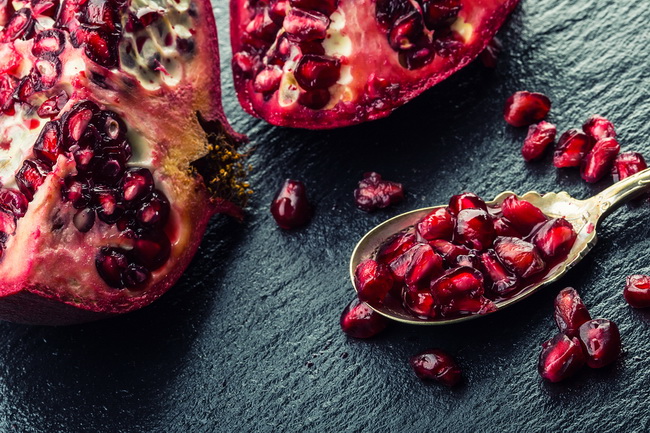- Make It Yourself Lavender Heart-Shaped Bath Bombs!
- 20 Things You Never Knew About “Down There”
- 12 Best Foods For Those Suffering From Arthritis Pain
- 12 Personal Hygiene Mistakes Almost Everyone Makes (Mom Never Told You About #4!)
- 15 Medicinal Plants And Herbs From The Cherokee People
- 12 Mind-Blowing Benefits Of Drinking Coconut Water During Pregnancy
- 12 Outstanding Winter Foods That Won’t Fatten You Up Like A Christmas Turkey
The Magic Fruit That Cleans Out Your Arteries

Photo credit: bigstock.com
Everyone is always looking for the one magic food, that one nutritional silver bullet that will guarantee them good health. This has the led to the “superfood” trend that has swept the health and nutrition fields. Some of these foods are legit. Others are more dubious. With so much information out there—much of it contradictory—how can you separate the wheat from the chaff? Aren’t there some ancient, accepted truths regarding what is healthy and what is not?
What if we told you there was a super-fruit that has stood the test of time? One that stands up to scientific scrutiny and has been proven to protect cardiovascular health while still tasting great? Intrigued? Read on and learn more.
Pomegranates are a fruit that come from a small, shrub-like tree which is native to the regions that make up present-day Iran. From there, it spread outward in all directions, becoming a staple in Middle Eastern, Mediterranean, Persian, and Indian cuisines, and became associated with fertility and religious concepts from places as far apart as China and Greece. Pomegranates have a rich and intense flavor, but what makes them so distinct from other fruits is how you eat them: You actually eat the seeds, instead of the fruit itself! The “meat” of the pomegranate is a white, inedible substance with a sponge-like constancy. Inside there are pockets filled with seeds surround by a juice-filled sac called an “aril.” A typical pomegranate contains about 500 to 600 arils, each of which is filled with vitamins and antioxidants that offer a multitude of health benefits.
Perhaps one of the most outstanding qualities of pomegranates is the potential they have to improve your cardiovascular health. Recent studies have shown that pomegranate juice can prevent damage to blood vessels and the hardening of the arteries due to the accumulation of cholesterol.
Arterial hardening, a condition otherwise known as atherosclerosis, is caused by the buildup of plaque in the arteries, which consists of harmful low density lipoprotein (LDL) cholesterol. When this occurs, it can cause high blood pressure and a significantly increased chance of a stroke or a heart attack.
Continue to Page 2

































